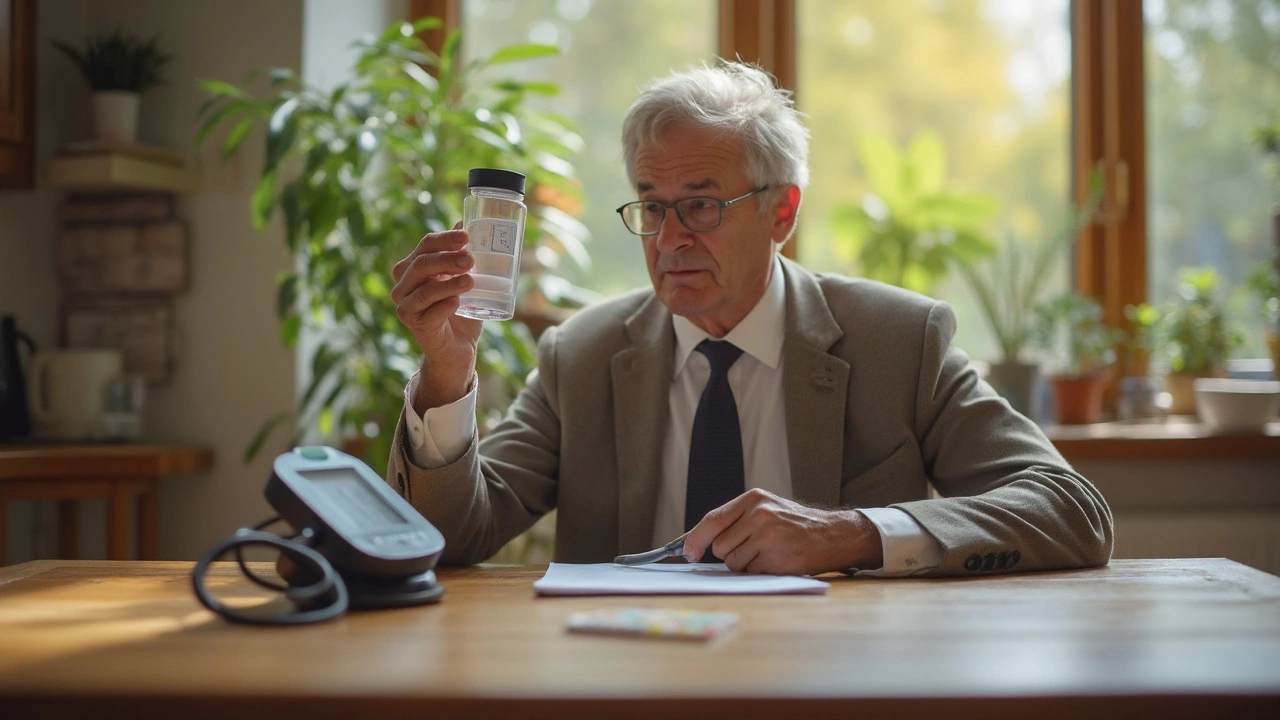Heart Failure: What You Need to Know Right Now
Heart failure means your heart can't pump blood as well as it should. That sounds scary, but many people live well with it when they know the signs and follow a plan. This page gives clear, usable steps: what to watch for, common treatments, and simple daily habits that make a real difference.
Spot the warning signs — act fast
Shortness of breath with activity or at rest, sudden weight gain (2–3 pounds in a day), swollen ankles or belly, and feeling unusually tired are common red flags. If you wake at night gasping for air, have chest pain, faint, or your lips/skin turn blue, get emergency care now.
Track your weight daily. A quick scale check each morning helps catch fluid buildup before it becomes serious. Use the same scale, same time, after you pee.
Treatment basics and practical tips
Most people with heart failure use a mix of medicines, lifestyle changes, and sometimes devices or surgery. Common drug classes are ACE inhibitors or ARBs (lower blood pressure and protect the heart), beta-blockers (slow the heart and improve function), diuretics (help flush excess fluid), MRAs like spironolactone (reduce fluid and hormonal strain), and newer options such as ARNI and SGLT2 inhibitors. Your doctor picks what fits your situation.
Take meds exactly as prescribed. Skipping doses or doubling up when you forget can be dangerous. If side effects bother you, talk to your provider — there are often alternatives. For example, if spironolactone causes problems, there are other diuretics and MRAs to consider; talk to your clinician before changing anything.
Salt and fluids matter. Reducing salt lowers fluid buildup and helps your meds work better. Many people aim for under 2,000 mg of sodium per day, but follow your doctor’s rule for you. If your doctor advises fluid restriction, use a cup or bottle to measure daily intake.
Move safely. Gentle walking or a supervised cardiac rehab program improves stamina and mood. Start slow and increase steadily. Ask your care team what activity level is right for you.
Know the device and procedure options. Some people need a pacemaker, an implantable cardioverter-defibrillator (ICD), or valve repair. Others benefit from stents or bypass surgery. If you’ve had stents, follow antiplatelet medication rules to reduce blood clot risk and attend follow-up appointments.
Be careful with online meds. If you buy medicines online, choose reputable pharmacies and verify prescriptions. Incorrect or fake meds can harm your heart treatment.
Keep a simple checklist: daily weight, symptom log, pill schedule, and emergency contacts. Share this with family or caregivers so they help spot trouble early.
If anything changes—worse breathlessness, new swelling, sudden weight gain, chest pain—call your doctor or go to the ER. Early action often prevents hospitalization and keeps you safer at home.
Want more on specific drugs, alternatives, or safe online pharmacy tips? Browse our related guides to learn practical next steps and real-world options for treatment and cost savings.
